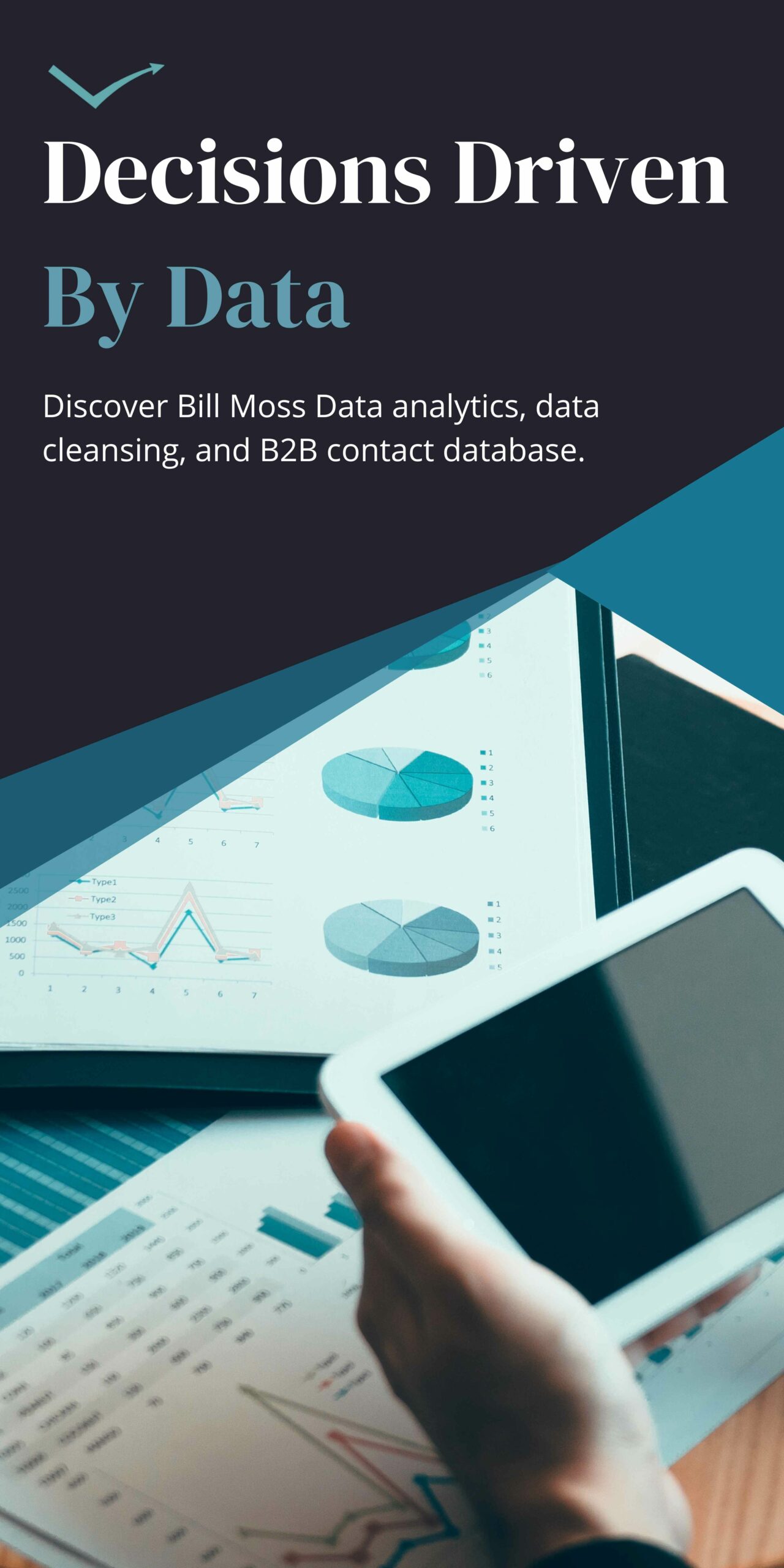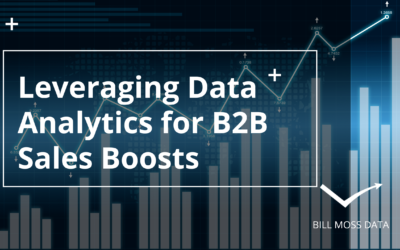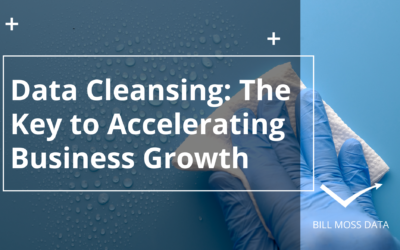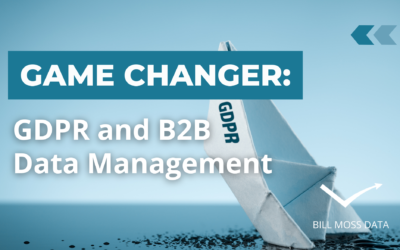For B2B sales representatives, the quality and depth of data about a prospect can directly impact the effectiveness of their pitch.
In 2023 data has become a driving force behind critical decision-making. Data provides invaluable insights to marketing and sales leaders, from understanding market trends, influencing purchase decisions, and directing their strategic efforts.
For B2B sales representatives, the quality and depth of data about a prospect can directly impact the effectiveness of their pitch. With access to comprehensive B2B data, sales reps can enhance their pitch to deliver tailored messages that resonate with potential customers.
But what exactly is B2B data, and how can you unleash its potential to drive your organisation’s success? We’re here today to help share some valuable insights and guide you on the path to sourcing and utilising B2B data effectively.
Join Our Newsletter
Subscribe to our newsletter and receive the latest news and exclusive offers from Bill Moss Data.
What is B2B Data?
B2B data refers to the information and details collected specifically about businesses, rather than individual consumers. It involves a wide range of data points related to businesses, such as company names, contact information (i.e. emails or phone numbers), industry classification, company size, revenue, transaction history, and more.
B2B data is typically used by organisations to understand and target other businesses for various purposes, such as sales and marketing activities or strategic decision-making.
As a company gathers more accurate B2B data about the companies and people in their target market, they will be able to make more effective decisions.
However according to a recent Forbes study, few companies are actually able to maintain a database full of accurate, organised, up to date data that they can use for real time analysis. Most organisations tend to either spend too much time gathering data, or not enough time cleaning and understanding the data they have.
So, how can your team collect and analyse data effectively?

Where Do You Get High Quality B2B Data?
Sales teams who need high-quality data on B2B businesses generally have two main options when it comes to data sources:
1. Do it yourself with in-house research
2. Use a reputable B2B data provider
In-House Research
In-house research refers to the practice of conducting data collection and research activities within an organisation using its own resources, typically carried out by a dedicated team or specific members of the sales or business development teams.
The primary objective is to gather relevant information about companies and contacts directly from online sources.
While in-house research can be beneficial as it allows for more control over data collection and customization to specific needs, it does come with certain challenges and limitations.
In-house research can be time-consuming and requires significant resources. It involves dedicating personnel to research and data collection tasks, which may take them away from other responsibilities.
In addition to being time consuming, in-house research also necessitates a certain level of expertise in data collection techniques, web scraping, data verification, and data management. Acquiring and maintaining the necessary tools, software, and infrastructure can add additional costs to a business.

B2B Data Providers
Opting for a B2B data provider is typically the ideal choice for sales teams already juggling busy schedules. These platforms consolidate comprehensive information about companies, contacts, and other relevant details.
By granting your team convenient access to any required data whenever and wherever it’s needed, B2B data providers become invaluable. Particularly for lean startup sales teams and SMBs, data providers can be a huge timesaver, offering a reliable solution to navigate the challenges posed by limited resources and time constraints.
How High-Performance Teams Use B2B Data
Now that we’ve gone over what B2B data is and how to obtain it, we’ll discuss some typical uses for B2B data in both day to day and long term strategies.
Generate High Quality Leads
Having high quality B2B data allows you and your team to identify and target your ideal audience accurately. With detailed information about companies, industries, job roles, and other relevant criteria, you can refine your targeting parameters to focus on prospects who are most likely to be interested in your products or services.
High-quality B2B data also provides accurate and up-to-date contact details of key decision-makers and influencers within target companies. This enables your sales team to reach out to the right individuals directly, improving the efficiency and effectiveness of your lead generation efforts.
Improve Lead Scoring
Sales teams can also leverage B2B data to enhance lead scoring methodologies and streamline efforts. By incorporating firmographic data, such as company size, industry, and revenue, into lead scoring models, teams can prioritise leads from target accounts that align with their ideal customer profile.
Analysing engagement data, including website visits, content downloads, and social media activity, can help gauge the level of interest exhibited by leads.
Technographic data reveals the technology stack used by prospects, enabling sales teams to identify leads with complementary needs. Purchase intent data, such as recent funding or expansion plans, can indicate leads in an active buying cycle.
By enriching existing lead data sales teams can assign scores that ensure effective lead prioritisation and improved conversion rates.

Find Key Moments for Sales
Marketers and sales teams can harness B2B data to identify key moments for sales and seize valuable opportunities.
By analysing data points such as company news, industry trends, and trigger events, sales teams can identify relevant moments to engage with prospects.
For example, data on funding rounds, leadership changes, mergers, or product launches can signify potential buying needs or shifts in a company’s priorities. Additionally, tracking prospect engagement data, such as website visits, content downloads, or webinar attendance, helps pinpoint moments when leads are actively seeking information or evaluating solutions.
By leveraging your data to identify key moments, sales teams can tailor their outreach to increase their chances of success in converting leads into customers.
Analyse the Market
Quality data plays a pivotal role in conducting thorough market analysis.
It enables market analysts to segment the market effectively, identify target markets, and analyse their characteristics, needs, and preferences.
By evaluating firmographic data, analysts can precisely identify the companies and sectors that align with their research objectives.
Additionally, B2B data facilitates comprehensive competitive analysis, as it provides insights into competitors’ activities, market share, and customer base. Analysts can monitor market trends, forecast future growth, and anticipate shifts in customer preferences by leveraging B2B data sources.
Furthermore, B2B data supports customer profiling, allowing analysts to create detailed profiles and understand behaviours and preferences.
Overall, quality B2B data serves as a reliable foundation for market analysis, enabling informed decision-making and the formulation of effective marketing strategies.
In Conclusion…
B2B data is a powerful asset that can unlock tremendous opportunities for businesses. Understanding what B2B data entails and how to utilize it effectively is crucial to be competitive.
As businesses continue to navigate the ever-evolving landscape, embracing the potential of B2B data becomes imperative. With the right tools, resources, and approaches, organizations can unleash the power of B2B data to drive growth, foster meaningful relationships, and stay ahead in today’s dynamic business world.
For more resources on our B2B data and data management solutions please visit us at www.bill-moss.com
Related Articles
Leveraging Data Analytics for B2B Sales
In the modern competitive business landscape, organisations are increasingly relying on data to gain a competitive edge and drive revenue growth. Through harnessing the power of data analytics, businesses can extract meaningful insights, identify patterns and trends,...
Data Cleansing: The Key to Accelerating Business Growth
Discover how data cleansing can transform your business processes and drive growth. In today's digital age, data is king. From customer information to sales data, businesses are constantly collecting vast amounts of data. However, as valuable as data is, it can also...
GDPR and B2B Data Management: A Game-Changer for Business Success
Discover how data cleansing can transform your business processes and drive growth. Data management is more important than ever in 2023. But with the advent of GDPR, managing data has become even more complex. For B2B companies operating in Ireland, GDPR has...
